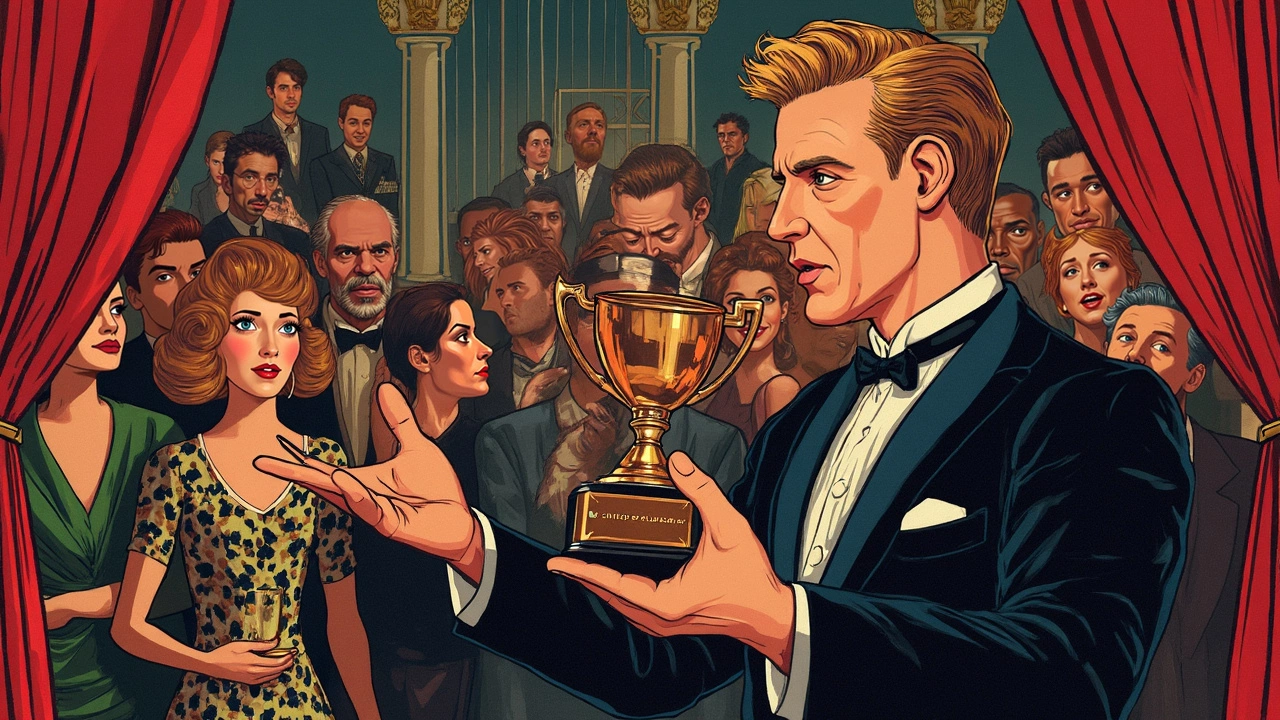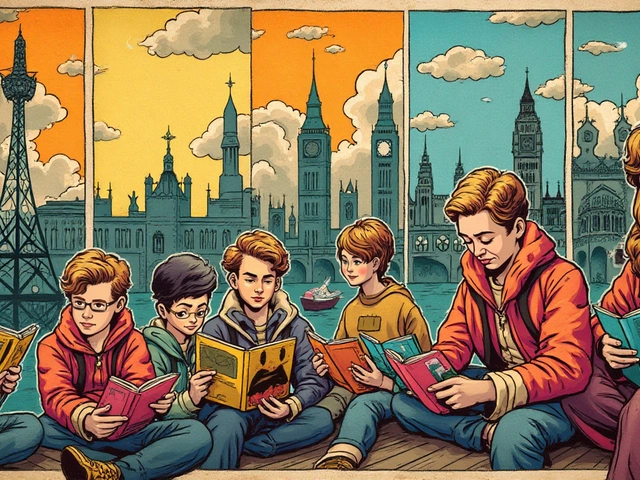Ever wondered what makes a song the target of universal disapproval? Whether it's questionable lyrics, an annoying beat, or just bad timing, a track can quickly fall from grace. Today, we'll uncover the details of the most disliked song that's taken center stage in this infamous category.
Strangely enough, sometimes it's not just about the music itself. Consider Friday by Rebecca Black. Released in 2011, it quickly became a viral sensation, albeit for all the wrong reasons. The repetitive lyrics and amateur production led to a barrage of criticism. But, it begs the question: would it have been as infamous without the internet's obsession with sharing the cringe-worthy?
It's fascinating to see how audience backlash unfolds. A lot of times, what fuels the dislike is the collective online echo chamber. Once a meme takes off, the critical voices get amplified, creating a whirlwind of negative sentiment that's hard to ignore.
- The Notorious Track
- Why It's So Hated
- Audience Backlash
- Cultural Impact
- Lessons for Musicians
- When Bad Publicity Helps
The Notorious Track
The winner of the 'most disliked song' title goes to none other than Baby by Justin Bieber, released in 2010. While it was a enormous hit with millions of young fans worldwide, it also drew an astounding amount of negative attention, particularly on YouTube. At one point, it was the platform's most disliked video, with dislikes far outpacing the likes.
Why the backlash? There’s no single answer. Some argue it was a backlash to Bieber's sudden rise to fame, while others pointed fingers at its catchy but repetitive chorus. For many, it wasn’t about the song itself, but more about venting their frustration at the pop machine.
Interestingly, despite the negativity, it didn't affect Bieber's career badly. In fact, it seemingly bolstered his presence. He remains one of today's top artists, which goes to show that sometimes being controversial can work in an artist's favor.
YouTube eventually shifted the way dislikes are displayed, showing them less prominently to curb bullying. This has changed how new tracks are received, reducing the potential impact of a mass dislike campaign.
Here's where things get interesting: when we look at what people critique about such tracks, it often boils down to the same few elements. For disliked songs, it usually focuses on:
- Lyrics being overly simplistic or repetitive
- Overproduction or artificial sounds
- An artist's public image or behavior
Having these issues doesn't mean a song is doomed from the start. But, they are factors artists might want to consider, especially if they’re aiming for that elusive universal appeal.
Why It's So Hated
When it comes to songs that people love to hate, there's usually more than meets the ear. The musical world is no stranger to polarizing tunes, and the ones topping the disliked song lists often share common traits.
One big reason for a song's downfall is its repetitiveness. Take Friday by Rebecca Black. Its lyrics and melody are simple, maybe a bit too simple, making it grating for some listeners. What was intended as a catchy tune turned into an earworm people couldn't shake off, even if they wanted to.
Production Quality
Another factor that invites disdain is poor production quality. Songs that sound like they were recorded in a garage on a budget tend to rub audiences the wrong way. When listeners feel they could've done a better job themselves, they don't hold back on the dislike button.
Overhype and Backlash
Sometimes, the hype surrounding a release sets expectations sky-high, only for them to come crashing down. Justin Bieber's Baby is a prime example of hype gone wrong. Although it gained massive popularity, it equally garnered a large amount of dislikes due to being overplayed and perhaps too mainstream for its own good.
Let's not forget about lyrics. If they come off as shallow or nonsensical, they become easy targets for criticism. Songs often carry the burden of depth, and when they fall short, listeners are quick to point it out.
Where Does This Lead?
At the end of the day, a track labeled as the most hated or disliked may still have a silver lining. Despite the negativity, these songs often receive intense publicity. As the old saying goes, 'There’s no such thing as bad press.' They might not win awards for artistry, but they resonate for sparking discussions.
| Factor | Impact |
|---|---|
| Repetitive Lyrics | High |
| Poor Production | Medium |
| Overhype | High |
| Weak Lyrics | Medium |
Ultimately, the most disliked song teaches us valuable lessons about audience expectations and the unpredictable nature of musical hits and flops.
Audience Backlash
When it comes to a disliked song, there's often more happening than just musical critique. In today's digital age, the online audience is more vocal than ever, and their reactions can make or break a song's reputation.
Take Justin Bieber's Baby, for instance. Despite its commercial success and catchy hook, it became infamous for being bombarded with dislikes on YouTube. Much of this backlash came not from the song itself but from people who found Bieber's young, clean-cut image grating at the time. It highlights how sometimes, it’s the persona or context rather than the tune that triggers a strong response.
Viral Factors
Social media plays a massive role in amplifying these reactions. When a song gets negative attention, it often goes viral for the very reasons the creator didn't intend. A single tweet or meme can set off a chain reaction where everyone wants in on the joke—even if it means publicly disliking the track without ever listening to it.
Pop star Rebecca Black saw a similar phenomenon with her 2011 hit Friday. Originally intended as a fun project, it spiraled into a viral sensation mocked across platforms. The song's low-budget production and repetitive lyrics made it easy fodder for ridicule, and the initial backlash was so intense it turned her into an overnight internet sensation—for better or worse.
Group Psychology
There's also the aspect of mob mentality. When a song is labeled the 'worst' of something publicly, heaps of users join in, possibly even without personal opinion, because being part of a trend can feel irresistible. It's a strange power of collective judgment that can sometimes unfairly skew an artist's work.
Consider these examples, and you can see how audience backlash isn't just about the music. It's a mix of internet culture, shared jokes, and sometimes, a dislike towards what's popular. For musicians navigating this sphere, understanding these dynamics can be as important as any musical note.

Cultural Impact
It's interesting how a disliked song can shape the cultural landscape. Take Rebecca Black's Friday for example. Despite its negative reception as the most hated track, it became part of internet culture history. Released in 2011, it was one of the early instances where YouTube's dislike button received massive attention.
This song's viral fame demonstrates how modern culture is influenced by social media dynamics and digital communities. The more people shared their distaste, the more popular the song became—an ironic twist that plays into the 'any publicity is good publicity' concept.
Memes and Virality
The song’s style and content quickly turned it into a meme, a common phenomenon in internet culture. Memes, as we know, can make or break a track due to their rapid spread and reproduction online. In this case, the meme power catapulted the song beyond its seemingly bleak beginnings to a position of notoriety that's hard to rival.
Importantly, music controversy has often driven traffic and discussions, leading to increased visibility and a lasting impression on pop culture. It hones in on how digital behavior influences what becomes popular or infamous, shaping trends across real-world and digital spaces.
Video Sharing Platforms
Platforms like YouTube play a significant part in this. Several years later, songs are still subject to this dynamic where user engagement (often in the form of dislikes and comments) can skyrocket a song to fame for all the wrong reasons. The dislikes for Friday crossed a million at one point, a testament to both its widespread recognition and the unique cultural moment it captured.
Broader Lessons
The lesson here is simple: Audiences have more power than ever in shaping the trajectories of songs. Modern artists need to understand this dynamic when releasing their music. While backlash can be destructive, it can also lead to unexpected fame.
Lessons for Musicians
It's no musician's dream to release the most disliked song. But let's flip this on its head. There's actually a lot to learn from these experiences that can guide budding artists.
Understanding Audience Preferences
The key takeaway? Know your audience. In the digital age, listeners' preferences are constantly evolving. Use platforms like Spotify Wrapped and YouTube Analytics to get a sense of what your audience is vibing with. Adapt and evolve with these insights.
Quality Beats Speed
With the internet's frenzy for content, it's tempting to release new music as quickly as possible. Yet, the production quality matters greatly. Remember Rebecca Black's Friday? Its backlash largely stemmed from its low production value. Make sure your track is polished before hitting the 'upload' button.
Be Authentic
Be genuine with your music. Audiences are savvy and can spot insincerity from a mile away. Maintain your unique voice and story. It's ok to take inspiration, but remember: authenticity resonates.
Manage Online Reputation
- Engage with fans and critics alike. This opens dialogue and shows you're listening.
- Keep emotions in check. Reacting impulsively to negative comments can amplify backlash.
- Strategically respond to feedback. Occasionally, addressing criticism can turn the tide.
Bad Publicity Isn't Always Bad
Sometimes, even a hated track brings about unexpected fame. The controversy around a song can spark curiosity and raise its profile. Handle the negativity with grace, and you might find that what started as a flop becomes your greatest platform for growth.
When Bad Publicity Helps
Sometimes, being labeled as the most disliked song isn't quite the disaster you'd expect. In the wild world of music, bad publicity can sometimes be a goldmine. Let's look at how a negative reception can actually turn into a springboard for success.
Take Rebecca Black's Friday as a prime example. While it garnered an impressive amount of hate, the attention it brought was undeniable. The song reached over 150 million views on YouTube before its removal and was referenced in countless media outlets. For Rebecca, it opened doors to TV appearances and a career in the music industry she might not have had otherwise.
There's a theory that even bad attention is better than no attention at all. This rings especially true in the era of viral content, where being talked about is sometimes more important than how you're being talked about. Bad press can snowball into curiosity. People want to see what all the fuss is about, leading to further exposure and even eventual chart success!
No Such Thing as Bad Press?
For new or struggling artists, encountering a wave of backlash could be the unexpected boost they need. Though it feels counterintuitive, here's how it could help:
- Viral Potential: The internet loves a spectacle. The bigger the controversy, the more eyeballs it attracts, arousing global curiosity.
- Engagement Boost: Whether it's likes or dislikes, the sheer volume of interaction can push a song further up the algorithm ladders, increasing its reach.
- Brand Building: Artists who take control of the narrative can reframe their image, often bouncing back with greater public interest.
- Networking Opportunities: Exposure, whether good or bad, catches the attention of industry professionals and can lead to unforeseen opportunities.
But remember, not every artist can successfully leverage negative buzz. It takes a lot of skill and sometimes a little bit of luck. So, if you're dabbling in music or any creative field, don't be too disheartened by a storm of criticism. You might just find a silver lining.



